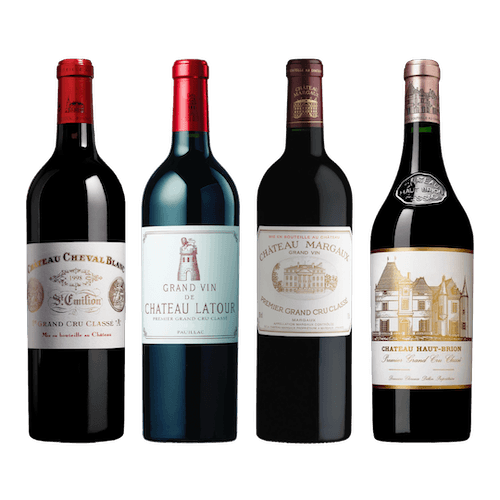
Bordeaux Classics
The Pinnacle of 1990’s Investment-Grade Bordeaux
Invest with as little as 1 share
Key Highlights
World-Class Vintages
1996 and 1998 were two of the best and most sought-after vintages in Bordeaux, with 1996 favoring the wines on the Left Bank and 1998 favoring the Right Bank (exception of Haut-Brion). Vintage quality is extremely important in Bordeaux and impacts values significantly. We found the current value of the 1996 and 1998 wines to be 55% greater than those from 1997.
Robert Parker Ratings
Robert Parker is the most notable wine critic to have ever rated a wine. He has since retired, but his ratings hold just as much weight as they once held. His 99 & 100 point wines are some of the most desirable on the market, which is why the Bordeaux Classics Collection is composed of what Robert Parker views as legendary wines.
Longest Track Record
The region of Bordeaux has the longest track record of investment grade wines. We have data dating back to 1900 showing blue chip Bordeaux wines have beaten all alternative asset classes from 1900-2012 (art, stamps, bonds). Bordeaux wines continue to make up the bulk of the fine wine trade driven by strong liquidity & returns.
Resources

Have a question? Just ask.
Do you have any questions about the specific wines or whiskies featured in this collection?
Email Wine TeamCollection Description
Blue Chip Bordeaux wines are considered among the most desirable investment wines on the market, with wines from the best vintages historically driving some of the best returns. This collection features wines from the famed 1996 and 1998 vintages in Bordeaux featuring two 100 point scores and two 99 point scores from Bordeaux oracle Robert Parker. The four wines in this collection are included in Liv-Ex’s Bordeaux Legends 40 Index, which has outperformed the base Bordeaux 500 Index in recent years. Additionally, at 23 and 25 years of age, these wines are just now reaching an acceptable age for drinking. This age is noteworthy because, historically, as wines are consumed, the pace of supply depletion picks up, and the value of the remaining wines increases.